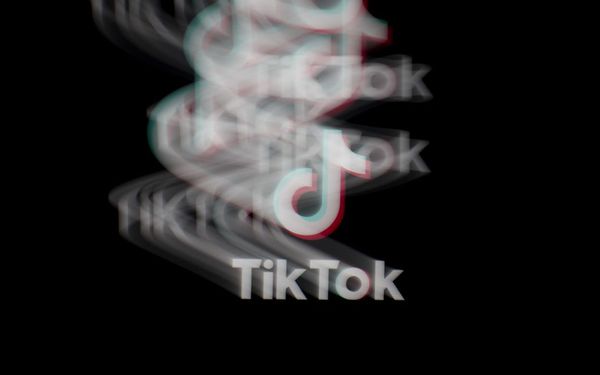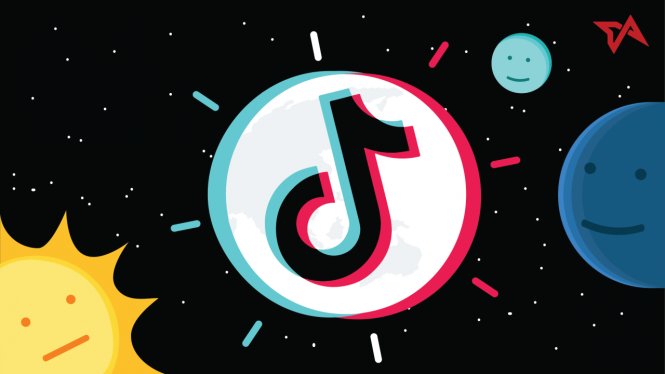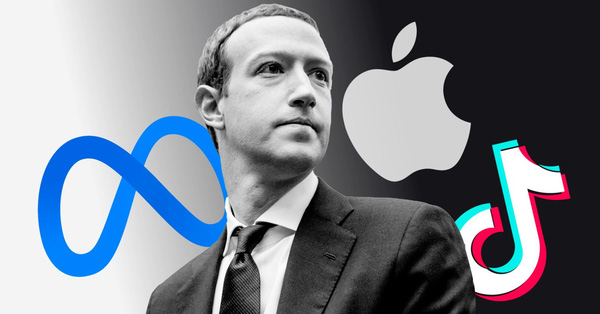Professor Scott Galloway from New York University shared a story about his friend’s 11-year-old son after visiting their home.
“The boy was lying sideways on the couch, holding a phone watching TikTok. An hour later, his face looked hypnotized, his eyes wide open, and his fingers were continuously swiping the screen,” Galloway described. “It reminded me of a drug addict.”

According to Galloway, TikTok’s “addictive” nature has reached a new height, likening it to a form of “digital cocaine.” This view is also supported by journalist John Koetsier from Forbes. He mentioned that he had experienced TikTok and found the social media platform addictively “scary.”
“I tried downloading the app, exploring it, and started watching 15-second short videos. An hour later, I was startled and wondered how my afternoon had passed so quickly,” Koetsier said. “Somehow, I was addicted from the very first try.”
“THE ADDICTIVE SUBSTANCE”
According to Bloomberg, TikTok was the most downloaded app in 2021 and has over a billion users worldwide. Additionally, with revenues nearing $4 billion last year, primarily from advertising, and projected to reach $12 billion this year, TikTok’s scale is expanding, rivaling both Twitter and Snap combined, just three years after it began ramping up advertising.
“This will definitely become a significant threat to Google and Facebook. TikTok is starting to adjust its media budget allocation to better match its user scale,” said Pieter Jan de Kroon, CEO of online advertising company Entravision Media Donuts.

In terms of total monthly active users, TikTok is somewhat lagging behind Facebook (2.9 billion) and Instagram (2 billion). However, the short videos on this platform are highly appealing, especially to younger generations.
According to data from Omni Core Agency in March, TikTok’s users are primarily young people, with 43% aged 18 to 24, 3.4% over 55, and women making up 57%. On average, each person spends 11 minutes per visit to “scroll” through 26 TikTok videos, each lasting 15 seconds. According to Galloway, 26 is the perfect number for TikTok to gather extensive data from users, far surpassing other companies.
“If we compare data to the new oil, then surely, TikTok is providing the highest quality oil in the world,” remarked The Guardian.
According to Bloomberg, the average time American users spend on TikTok is about 29 hours per month, more than the combined total of Facebook (16 hours) and Instagram (8 hours), according to mobile research firm Data.ai. Scott Galloway, a professor at New York University, likened this addictive capability to a form of “opium,” partly because TikTok is diverse and includes music production and game publishing.
In reality, TikTok is venturing into the e-commerce sector—a ambition that is gradually blurring the lines between social media and online shopping applications. This video-sharing platform allows sellers to set up digital stores in the UK, Indonesia, and Thailand. Millions of users will be able to purchase products directly within the app without relying on traditional e-commerce platforms.
“TikTok is the TV for Generation Z,” said Jo Cronk, president of marketing company Whalar.
THE SECRET ALGORITHM
Not only is it considered an “addictive substance” for young users, but TikTok itself has now become an indispensable part of media campaigns. Ryan Detert, CEO of an influential marketing company, stated: “Two years ago, TikTok was still in the testing phase. Now it’s different. It has surpassed that testing period.”

Richard Henne, co-founder of the clothing brand Ivory Ella, shared that his company regularly uses TikTok to attract young girls and Generation Z. Henne previously spent ¼ of his marketing budget on Facebook and Instagram, but he mentioned that he is “gradually reducing this share as soon as possible because those platforms are clearly losing ground in the market.”
Instead of tracking users as Facebook does, TikTok, along with artificial intelligence (AI), differentiates and selects user preferences, then utilizes algorithms to help them access the right ads and related content. This approach is paving the way for TikTok to become increasingly popular.
The expansion has raised concerns for Mark Zuckerberg, who asserted that Congressional interference in American innovation would only allow Chinese companies like TikTok to escape antitrust scrutiny. Meta also announced significant investments in AI development, believed to enhance advertising, which is a massive revenue source for the corporation.
“Currently, we are proposing content on Facebook and Instagram based on your friends and following lists. Over time, there will be more and more content from AI recommendations. And as AI recommendations improve, you know, you will have access to all content, not just from the people you follow, but the entire universe.”
This method was previously used by TikTok, owned by ByteDance, to help the app reach 1 billion monthly users. The blatant “copying” has prompted Blake Chandlee, TikTok’s Global Business Solutions President, to warn that Meta will face significant trouble if it continues to masquerade as a copycat.
Nevertheless, to be fair, in its efforts to attract users, TikTok, despite being “copied,” is still leading the game. The secret lies in its secret algorithms.
According to experts, there is currently no AI algorithm that is more comprehensive than TikTok’s short video social network. While Facebook requires users to build a complete profile page and provide personal information to achieve this, TikTok only needs the algorithm.
The billion-dollar money-making machine TikTok: encroaching on the advertising sector, expanding to rival the combined scale of Twitter and Snap, eyeing to dethrone Facebook and Google.